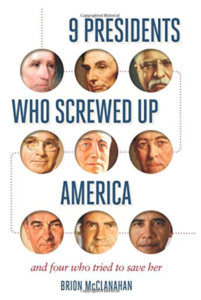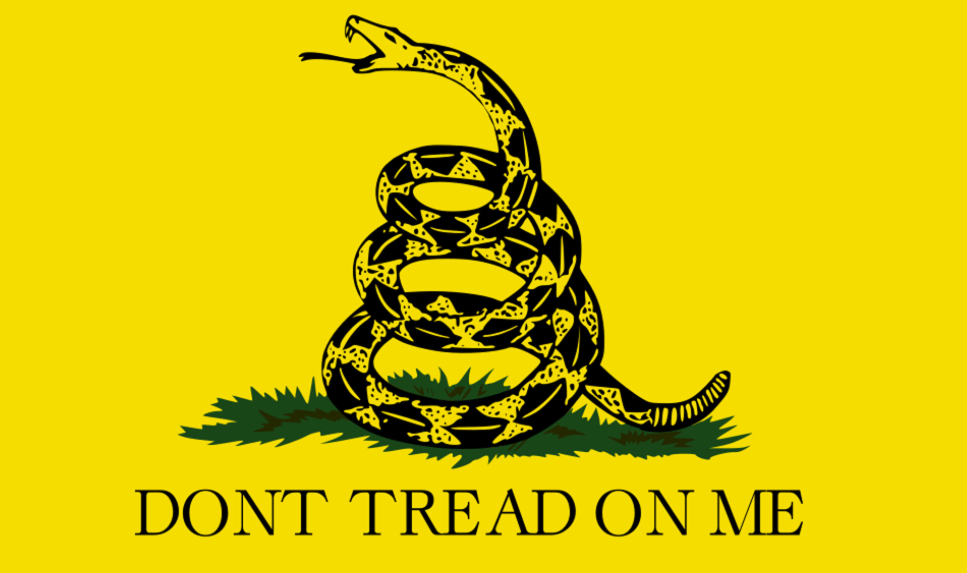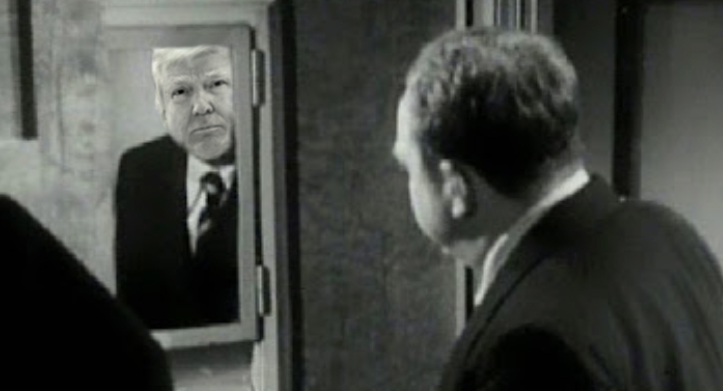
Hi Everyone,
In a recent post I talked about the factors and thinking that led me to change my political views from that of a life long Republican to a Libertarian and how I became convinced that the libertarian philosophy is a more moral, consistent, and Christian political philosophy (in that follows the moral law of God more closely) than either modern day conservatism or progressivism. I will remind you of a key premise in my argument for Libertarianism:
What is morally wrong for a person to do is also wrong for a group and wrong for a government.
You can read the post by clicking here: Why I Became a Libertarian and What That Is (and Isn’t)
Pulling on The Presidency
Today’s topic is the U.S. Presidency. In a previous blog I wrote about the need for a truly constitutional president. The oath that our next president takes in January is solemn and profound:
“I do solemnly swear (or affirm) that I will faithfully execute the Office of President of the United States, and will to the best of my ability, preserve, protect and defend the Constitution of the United States.”
You can read the post by clicking here: Help Wanted: A Constitutional President
Currently, both Hillary and Donald are dangling promises (the shiny) and dire consequences (the scary) in front of the populace in the usual campaign to win votes and secure the job. The above slider illustrates the desires of two example voters and what they want the next president to accomplish. You will of course note that these two people are pulling from opposite directions and the one on the left would probably vote for Hillary Clinton and the one on the right would probably vote for Donald Trump.
What is fascinating is that these two voters if they are typical, will assume that their candidate if elected, will actually have the authority and ability to accomplish what they desire. Granted, most voters are actually skeptical regarding the actual ability of their candidate to implement promises becuase sometimes the other party in Congress will stand in the way. But despite that, the presidency is very powerful and things not directly accomplished by presidential order and fiat, are still heavily influenced by the President via the bully pulpit. In fact, both candidates have made very significant promises on most of all of the illustrated issues and quite often with the strong dogmatic confident language of “I Will….”.
The media in its pursuit of ratings cheerleads endlessly on both sides. The typical “news” program is primarily a line-up of partison talking heads joining in the presidential tug-of-war with flaming rhetoric, righteousness, and sober warnings about the evil desires of the opposing candidate. Both the shiny (promises) and scary (dire consequences) are the currency of argument and persuasion. It is like watching a ping pong match with your nose on the side of the net.
This is the state of things: our candidates, electorate, and press all behave as if we are electing a president with unbounded spheres of authority. Consequently, there is not even a passing examination of what legitimate authority the President of the United States actually holds. This is (or at least should be) shocking. Especially given that we are a constitutional republic (where the peoples representatives are limited in what they may do) that clearly spells out the office of president in simple language.
The Constitution specifically defines the powers and responsibilities of the Presidency.
The duties of the president are spelled out in sections two and three of Article II of the Constitution. It is printed at the end of this blog for you to read if you desire. It is only 328 words. In summary the following are duties and powers of the President:
- Commander of the Armed Forces when called into the service of the country (by congressional act of War).
- Obtaining the opinions of the officers of executive departments.
- Granting reprieves and pardons for offenses against the United States.
- Make Treaties with two thirds approval of the Senate.
- Appoint Ambassadors, public Ministers and Consuls, and Supreme Court Judges, and other Lawful Appointments – all with the advice and consent of the Senate.
- Fill vacancies in these positions temporarily when the Senate is in Recess.
- Provide periodically information regarding the State of the Union to Congress.
- Recommend to Congress measures that the President judges necessary and expedient.
- Convene Congress under extraordinary circumstances.
- Receive Ambassadors and other public Ministers.
- Take care that the Laws of the United States are faithfully executed.
- Commission all the officers of the United States
How much of what presidential candidates talk about and campaign on regards the actual duties and authority of the office? One would think they would talk about how they would command a declared war, grant pardons, approach treaty making, appoint ambassadors and Supreme court justices, what they would recommend to congress as necessary and expedient measures, which Ambassadors they would receive, and how they would execute existing laws. Not much.
What do they campaign on? As the slider above illustrates, they with few excreptions talk about issues that they have no constitutional authority over. Even the military topics in the slider would at most be advisory to Congress (item 8 above), as Congress is charged with organizing, arming, and disciplining the military (Article I, section 8). And many of these issues are not only not under the authority of the President, but also not under the authority of the Congress, but reside with the states (Article I and the 10th Amendment). Our candidates by and large campaign on things they have no legitimate authority over.
So, rather than pulling on the Presidency – we need to pull for the Presidency and a restoration of the Constitutional office.
Until next time,
Will
P.S. The “C” under the Presidential Seal stands for the Constitution.
Book Recommendation
This is a book that deeply challenged my view of the Presidency and the Presidents. How do we evaluate Presidents? What happens when we evaluate them by their performance to their oath? Brion McClanahan’s book is both a lesson in history and our constitution. Be brave – read it! (click on image to go to Amazon).
Podcast recommendation:
KrisAnne Hall is a dynamic and knowledgeable speaker on the constitution and liberty.
A Response to those that deny that the constitution is not binding or relevant to modern day America
Even the founders did not agree as to what the Constitution meant
Response: The Federalist papers and the records of the state ratification conventions say otherwise. Where there were differences it resulted in a careful crafting of language that was a compromise that all the states could live with. After the repression of mother England the founders had no interest in creating an ambiguous document that would lead to a repeat of the abuse of power they gave their lives and fortunes to secede from. Would you write a contract for a house where you didn’t agree to what the language meant and then proceed anyway?
None of the founders expected the Constitution to remain static
Response: Agreed. That is why the Constitution includes the process for its own revision by the states. The Constitution has been so amended 27 times – most recently in May of 1992. This very fact shows that we remain a constitutional republic. Hence if there are to be changes to executive duties it must come through amendment. As these duties have not been changed by Constitutional amendment – they remain in effect.
The Congress have over time ceded their powers to the executive
Response: This is sadly true, and it is unconstitutional. The constitution (which is a contract between the states in forming and limiting the Federal Government) does not allow the Federal Government to add additional powers to itself (10th Amendment) or to rearrange powers between its own branches. Again – If we as a republic wish to change or delete portions of the constitution it can be only done through the amendment process.
Presidents live in different eras and face diverse challenges. They should be measured by results not by their oath to an outdated document.
Response: This is tantamount to saying that we can re-interpret the constitution according to the added understanding we have in the changing circumstances of our day. If such a change of thinking comes about, and indeed it can and sometimes should (slavery prohibition in the 13th amendment or women’s right to vote in the 19th amendment as examples) – there is a legal process to gain the approval of the states and so amend the constitution. Again, having the government itself re-interpret and redefine the meaning of the document that forms it and commissions it – is nothing short of tyranny and usurpation. It is why we left England. Would you allow your bank to rewrite your loan agreement without your consent?









